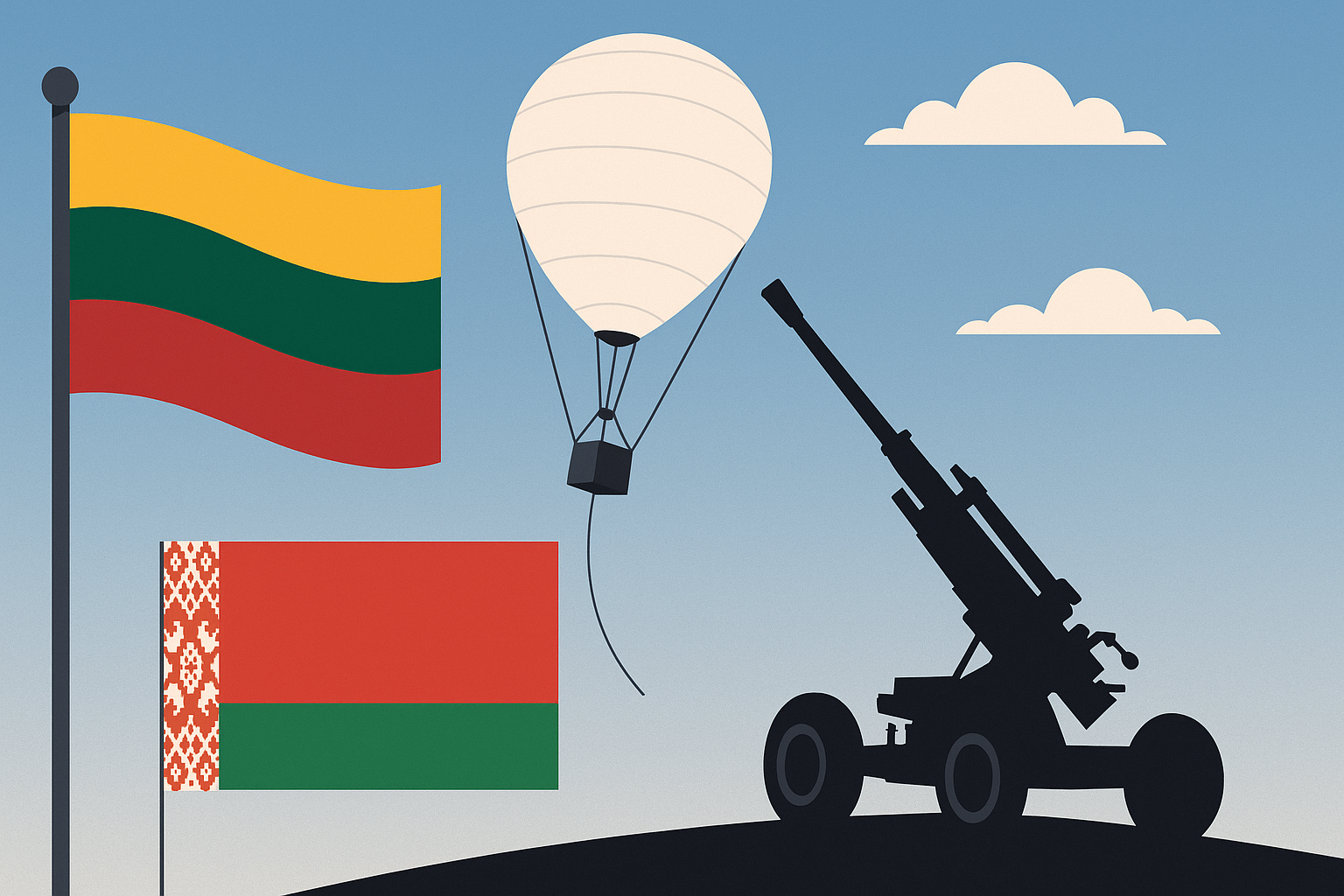Lithuania has announced that it will shoot down any balloons crossing its border from Belarus, citing repeated airspace violations that have disrupted civilian air travel and heightened regional security concerns.
Prime Minister Inga Ruginienė said on Monday that the government had decided to close the border with Belarus indefinitely after a series of incidents involving weather balloons used by smugglers to transport contraband cigarettes. The incursions forced authorities to temporarily close Vilnius Airport four times last week, disrupting nearly 100 flights and affecting around 14,000 passengers.
“The Lithuanian military will take all necessary measures, including shooting down these balloons,” Ruginienė declared. “This is how we send a signal to Belarus — no hybrid attack will be tolerated here. We will take the toughest measures to stop such actions.”
Escalating Tensions on NATO’s Eastern Flank
The move comes amid growing unease along NATO’s eastern borders, where Lithuania, Latvia, Estonia, and Poland have all reported airspace violations involving drones, aircraft, and weather balloons originating from Russia and Belarus.
Lithuania’s eastern border with Belarus lies just 30 kilometers from Vilnius, a strategic vulnerability that has long concerned officials. The proximity has raised alarms especially since Belarus built a Russian-backed nuclear power plant near the frontier, and a river from the facility flows into the Lithuanian capital.
In response, NATO has pledged to bolster regional air defences under its Eastern Sentry mission, deploying additional fighter jets and missile systems from allied nations. Lithuania itself lacks an independent air force and relies on NATO’s multinational air policing mission for aerial security.
Impact and Broader Measures
According to officials, the balloons — described as elongated and white — were mostly detected at night, complicating interception efforts. The Lithuanian military now has authorization to neutralize such objects immediately, with priority given to civilian safety and the protection of national airspace.
The government is also preparing to tighten criminal penalties for smugglers, introducing jail terms for those caught participating in the operations.
Ruginienė confirmed that exceptions to the border closure would apply for diplomats and EU citizens leaving Belarus, but emphasized that the new restrictions would remain in place “as long as Belarus continues to engage in hostile and provocative activities.”
Regional Coordination and Security Concerns
Lithuania’s decision aligns with similar steps being discussed by Latvia and Poland, both of which share borders with Belarus and have reported comparable incidents.
Advisers to President Gitanas Nausėda have also suggested that transit routes to Russia’s Kaliningrad exclave — which passes through Lithuanian territory — could be restricted if provocations persist.
The balloon incursions are the latest in a series of “hybrid threats” that Lithuania accuses Belarus and Russia of orchestrating — combining smuggling, cyberattacks, disinformation, and airspace violations to test NATO’s defences and political resolve.
As Lithuania tightens its borders and prepares for potential escalation, the episode underscores the growing tension along NATO’s eastern frontier, where even small-scale incursions now carry significant geopolitical implications.








